International
Cuba factory that rolled Castro’s cigars still strives for ‘the perfect puff’
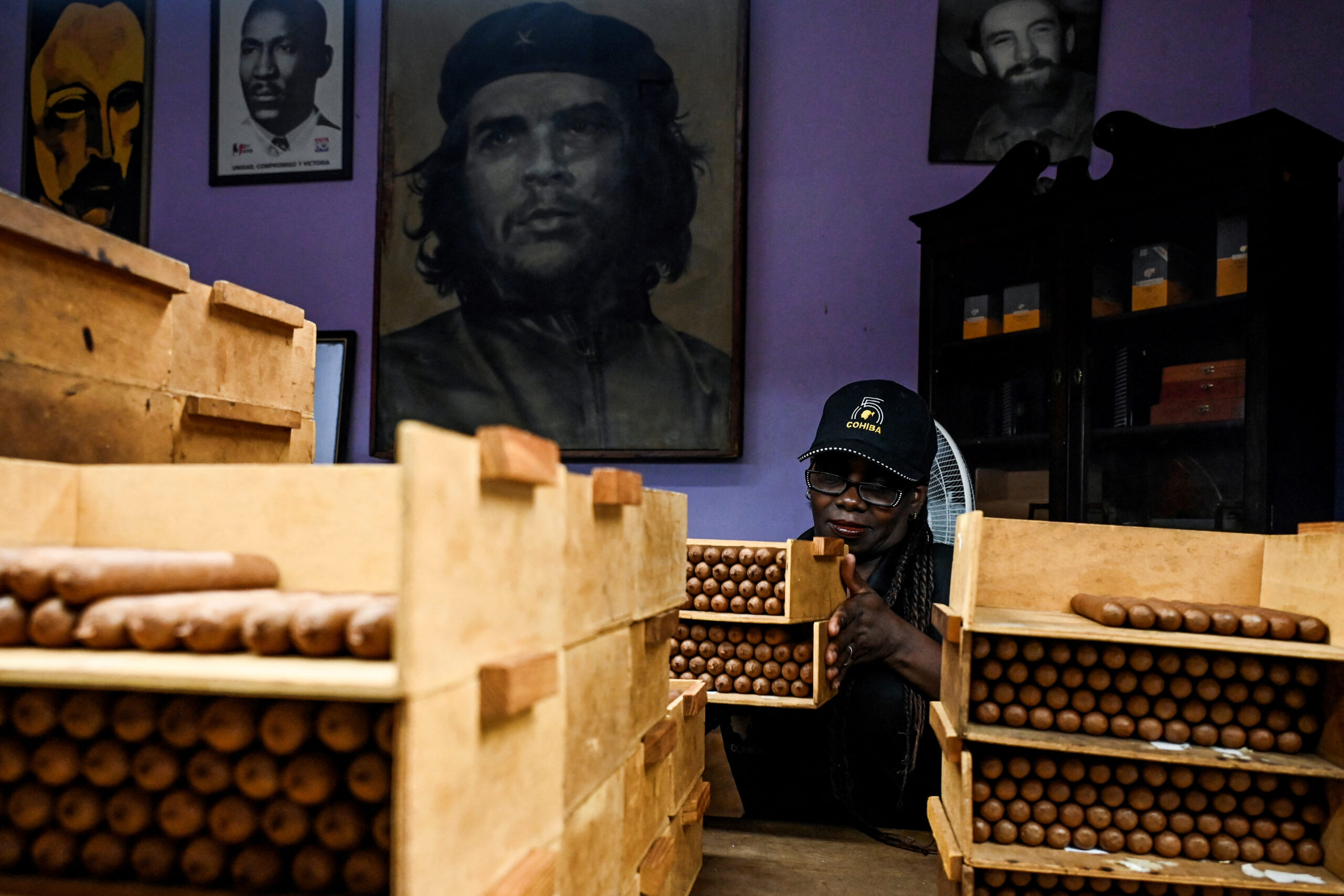
AFP | by Leticia PINEDA
Seated before a machine that checks cigar quality, Orquidea Gonzalez says she is proud to carry on the craft’s tradition and contribute to an export industry that has grown during the pandemic.
“I love making cigars. This is where I’ve spent my life, and it’s an art. Not everyone knows how to make cigars, like not everyone knows how to paint a picture,” said the 55-year-old factory worker.
Her job is to measure in a metal tube the draw of each cigar to ensure that the smoker gets the perfect puff.
“If it’s less than 40, the (suction) level is excessive; if it’s more than 80, it’s too low,” she explained, her eyes glued to the machine’s needle.
The El Laguito factory opened in 1966 in western Havana to make the cigars favored by the hero of the 1959 Communist revolution and longtime president Fidel Castro.
The factory is the birthplace of Cohiba cigars, Cuba’s most prestigious brand. The name recalls the way the native Taino people referred to the rolled tobacco leaves they smoked.
Rolling one’s own leaves is a tradition that endures among farmers in the western province of Pinar del Rio, where most Cuban tobacco farms are located.
Flavor
Castro’s favorite cigar, the Cohiba Lancero, which he smoked until he quit in 1985 at the age of 59, is still produced in the factory.
“Despite all the difficulties we face,” the goal is to manufacture “nearly two million” cigars in 2022, or roughly 9,000 a day, said factory head Oscar Rodriguez.
Despite the coronavirus pandemic, Cuban cigar exports grew by 15 percent in 2021, totaling $568 million, according to Habanos S.A., which includes all national brands. That constitutes a significant boon for the Cuban economy, which is in the grips of its worst crisis in 30 years, with daily shortages and power cuts.
The factory “did not stop for a single day” during the pandemic, eventually making cigars “the country’s second-largest export,” Rodriguez said.
Spain, China, Germany, France and Switzerland are among the top buyers.
Expertly handling curved blades and a sticky substance, dozens of workers put the finishing touches on the ends of newly rolled cigars.
Some 60 percent of the workers are women — following a tradition at the factory founded by Castro’s comrade-in-arms Celia Sanchez — that aims to give opportunities to single mothers or women in difficulty.
Another founder, Norma Fernandez, who died during the pandemic, rolled the cigars for the leader of the revolution.
“It was a privilege to be able to say, ‘I made the president’s cigars,’” said Orquidea Gonzalez, hard at work at the factory, which is housed in an elegant 1950s villa.
Caridad Mesa, now 55, started working at El Laguito as a cleaning lady. Thirty years later, she is in charge of spotting the smallest defects in the cigars.
It is necessary to control “the quality, the weight, the length… the thickness,” she said, scrutinizing boxes brimming with cigars under a large portrait of Communist revolutionary icon Ernesto “Che” Guevara.
Cohiba cigars, which include a wide range of styles, can cost $30 to $200 each, both in Cuba and abroad.
“Cuban tobacco is distinguished from all other kinds by the flavor of the land of Pinar del Rio,” said Gonzalez.
It is there, she added, “where the best tobacco crops are grown.”
International
Federal immigration agents kill man in Minneapolis, sparking protests and outrage

Federal immigration agents shot and killed a 37-year-old Minneapolis man during an operation on Saturday, authorities confirmed, sparking new protests and deepening outrage over federal immigration enforcement in the city.
The victim, identified as Alex Jeffrey Pretti, was a U.S. citizen and intensive care nurse who worked at a Veterans Affairs hospital and was widely respected in his community, according to colleagues and news reports.
Officials said the shooting occurred during a targeted immigration raid in south Minneapolis. The Department of Homeland Security (DHS) described the incident as an act of self-defense by agents who believed the man posed a threat.
However, videos reviewed by multiple outlets and eyewitnesses show Pretti holding a phone and not displaying a weapon before being pepper-sprayed, tackled by agents and then shot multiple times, raising serious questions about the official account.
The killing comes amid a broader federal immigration enforcement operation in the city and follows another controversial shooting in early January in which Renée Good, a 37-year-old U.S. citizen, was fatally shot by an ICE agent, leading to widespread protests and criticism of federal tactics.
International
Delcy Rodríguez seeks political agreements after Maduro’s ouster
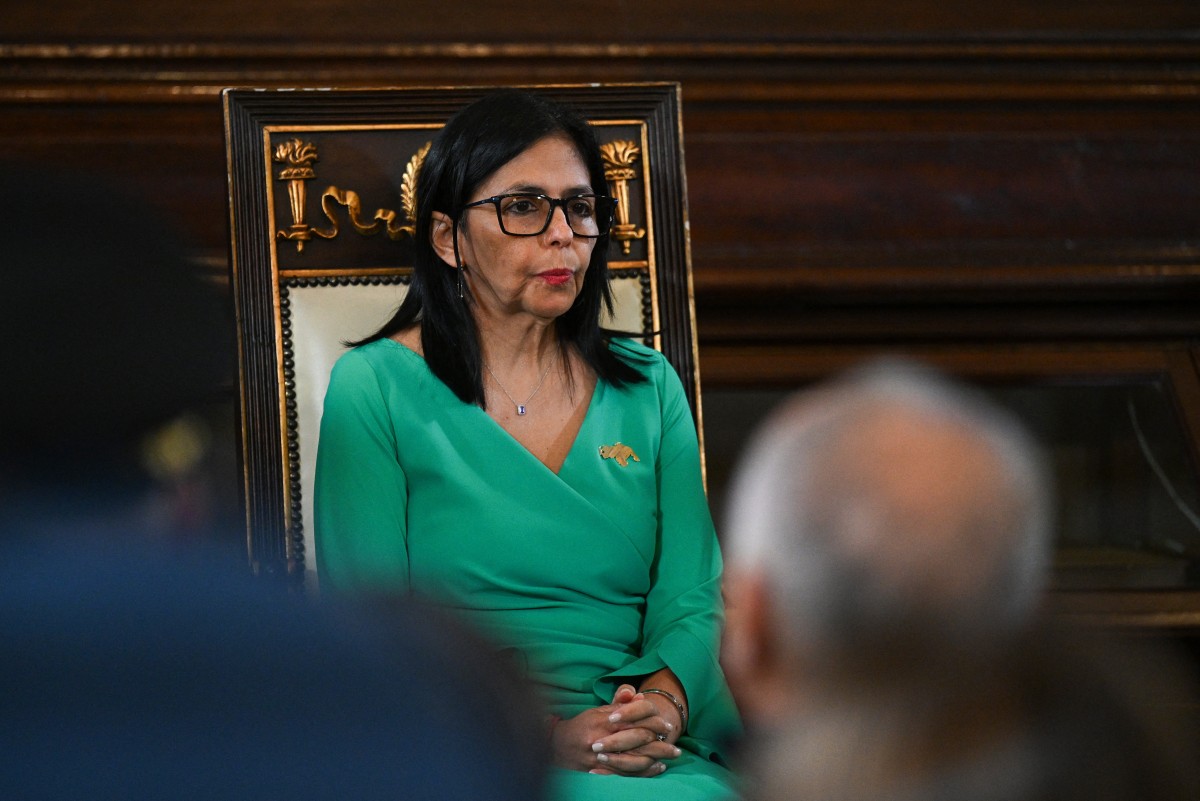
Venezuela’s interim president, Delcy Rodríguez, on Saturday called for “reaching agreements” with the opposition to achieve “peace” in the country, which the United States says it now controls following the military operation that removed President Nicolás Maduro from power.
Rodríguez, who previously served as Maduro’s vice president, assumed interim leadership after the leftist leader was captured on January 3 during a military incursion that left nearly 100 people dead.
In her first public statements since taking office, Rodríguez signaled a shift in the strained relationship between Caracas and Washington, while also committing to the release of a “significant number” of political prisoners.
“There can be no political or partisan differences when it comes to the peace of Venezuela,” Rodríguez said during an address in the coastal state of La Guaira, broadcast on state television VTV.
“From our differences, we must speak to one another with respect. From our differences, we must meet and reach agreements,” she added.
The day before, Rodríguez instructed the head of Parliament — her brother Jorge Rodríguez — to convene talks with various political sectors in the country aimed at achieving “concrete and immediate results.”
International
Bogotá and Quito Seek Dialogue After Tariffs and Power Cut Escalate Tensions
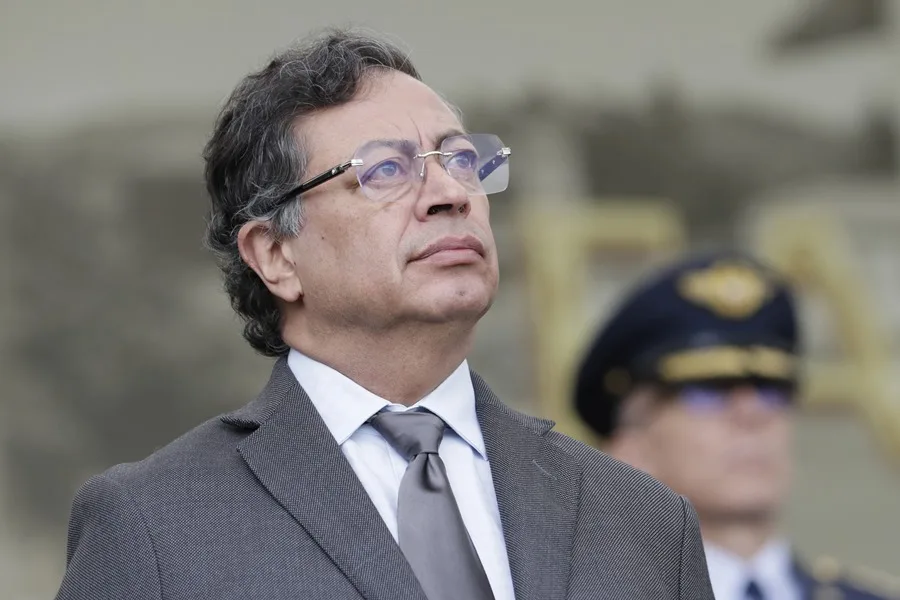
Bogotá and Quito will hold an emergency bilateral summit next week amid recent developments that have strained relations between the two countries.
Tensions escalated this week after Ecuadorian President Daniel Noboa unexpectedly announced a 30% tariff on Colombian imports. Colombia responded with a reciprocal measure, imposing the same tariff on around 20 Ecuadorian products and suspending electricity exports to Ecuador.
Aware that electricity imports are critical to easing Ecuador’s recent energy crises, Quito further imposed a 30% tariff on the transportation of Colombian oil through its territory.
However, recent statements from the Ecuadorian government suggest that dialogue between the two sides has intensified in recent hours. Ecuador’s Minister of Foreign Affairs, Gabriela Sommerfeld, confirmed that active conversations are under way.
In Colombia, segments of the business sector have welcomed the prospect of negotiations. The National Business Council (Consejo Gremial Nacional, CGN), for instance, urged both governments to restore commercial relations, warning that the dispute “puts jobs and regional economic stability at risk.”
-

 International4 days ago
International4 days agoMexican influencer “La Nicholette” kidnapped in exclusive area of Culiacán
-

 International3 days ago
International3 days agoTrump to invite Venezuela’s interim president Delcy Rodríguez to Washington
-

 Central America3 days ago
Central America3 days agoMazatenango Carnival cancelled amid State of Siege in Guatemala
-

 International4 days ago
International4 days agoMajor winter storm to blanket U.S. and Canada with snow, ice and arctic cold
-

 International3 days ago
International3 days agoMarkets rise as Trump halts Europe tariffs and floats Greenland agreement framework
-
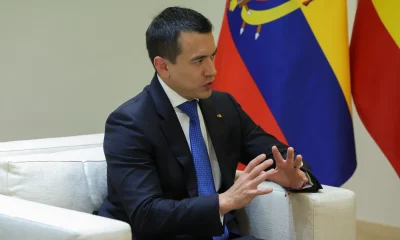
 International4 days ago
International4 days agoColombia slams Ecuador’s 30% tariff as ‘economic aggression’
-

 International4 days ago
International4 days agoTrump announces preliminary NATO agreement on Greenland, suspends tariffs on Europe
-

 International3 days ago
International3 days agoVenezuela’s interim president predicts 37% increase in revenues for 2026
-

 International3 days ago
International3 days agoJapan reopens Kashiwazaki-Kariwa Plant despite public concerns
-

 Internacionales2 days ago
Internacionales2 days agoMajor winter storm threatens “catastrophic” ice and snow across much of the U.S.
-

 International1 day ago
International1 day agoTrump-Era Defense Plan Prioritizes Border Security and Scales Back Global Commitments
-

 International3 days ago
International3 days agoFour minors killed in deadly clash between FARC dissidents in Colombia’s Amazon
-

 Central America2 days ago
Central America2 days agoGuatemala’s president rules out negotiations with inmates after prison riots
-
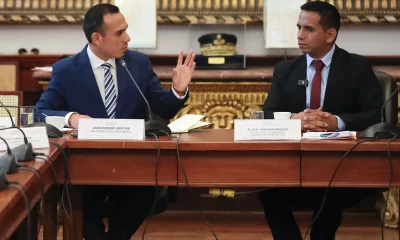
 International4 days ago
International4 days agoJosé Jerí claims destabilization attempt after videos of secretive meetings surface
-

 International2 days ago
International2 days agoGuatemala considers sending high-risk gang members to military prisons
-

 International1 day ago
International1 day agoBogotá and Quito Seek Dialogue After Tariffs and Power Cut Escalate Tensions
-

 International2 days ago
International2 days agoRights group says over 5,000 killed in Iran protests, mostly civilians
-

 International6 hours ago
International6 hours agoDelcy Rodríguez seeks political agreements after Maduro’s ouster
-

 International6 hours ago
International6 hours agoFederal immigration agents kill man in Minneapolis, sparking protests and outrage


























